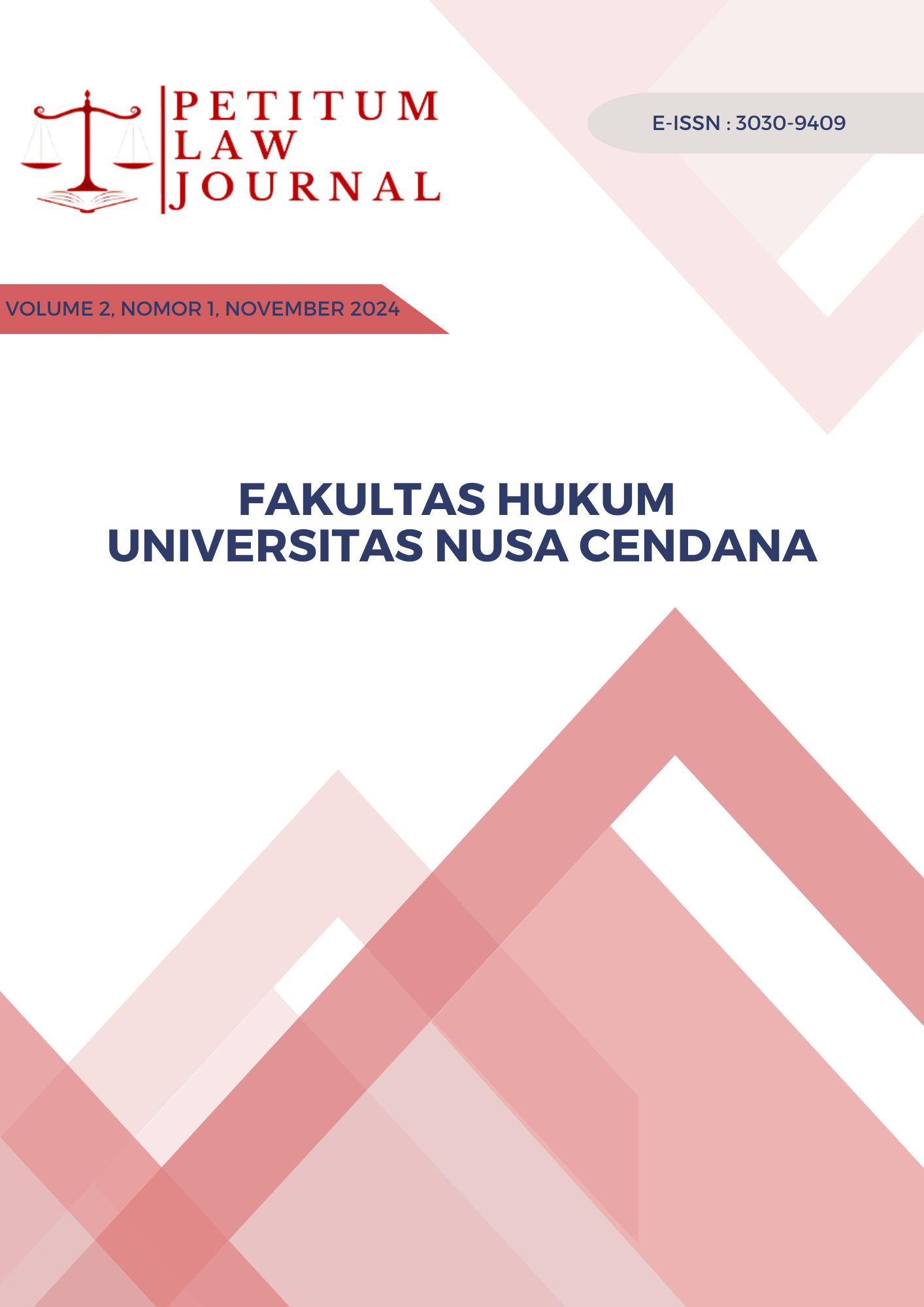KAJIAN JURIDIS TALA AKIBAT PECERAIAN ADAT (CEAR KAENG KILO) DALAM PERKAWINAN ADAT MANGGARAI (Studi kasus Tala Di Desa Longko, Kecamatan Wae Ri’i Kabupaten Manggarai)
Main Article Content
Abstract
The aim of this research is to explain and analyze the Tala resulting from traditional divorce (Cear Kaeng Kilo) in Manggarai traditional marriages. The research method used in this research is an empirical legal research type. The data source for this research was obtained from primary data, namely obtained from the people of Longko Village, Wae Ri'i District, Manggarai Regency, East Nusa Tenggara Province, while secondary data was obtained from various books, journals, articles and internet sites that were related to the problem. what is being observed is then processed through three stages, namely editing, coding, and data systematization and analyzed through three stages, namely data reduction, data display, and verification. The results of this research show that 1. The meaning of tala in Manggarai marriage customary law, tala is a form of customary fine that must be paid by a woman and her family to a man for violating customary law, namely committing cear kaeng kilo (divorce). 2. The consequences of tala law in Manggarai traditional marriage law. When cear kaeng kilo occurs, it causes many legal consequences, including: (a). Legal consequences for heirs, (b). Consequences of customary law on the couple's inheritance, (c). Customary obligations arising from c ear kaeng kilo in Manggarai customary marriage law, (d). The impact of Tala customary law on Wina and Rona children. 3. Implementation of tala in Longko Village, Wae Ri'I District, includes: (a). The man visits the woman's house to see the woman's condition, (b). The male family does lonto leok, (c). Leso tuning.

